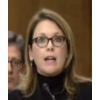Part of the Department of Health and Human Services, the Substance Abuse & Mental Health Services Administration (SAMHSA) makes grants to various agencies to prevent and treat addictive and mental disorders and furthers its work through public campaigns, system reform, policy and program analysis. SAMHSA seeks to improve the quality and availability of prevention, treatment and rehabilitation services in order to reduce illness, death, disability, and cost to society resulting from substance abuse and mental illnesses. At times the agency has taken public stances on controversial issues such as homosexuality and transgender identity and treatment of heroin addiction.
The National Institute on Alcohol Abuse and Alcoholism (NIAAA) was formed in 1970, when President Richard M. Nixon signed the Comprehensive Alcohol Abuse and Alcoholism Prevention, Treatment, and Rehabilitation Act of 1970. Also known as the “Hughes Act,” because Senator Harold E. Hughes sponsored the bill, this law recognized alcoholism as a major healthcare problem and established the NIAAA as a way to combat its effects.
The Voice Awards honor Hollywood writers and producers “who incorporate dignified, respectful, and accurate portrayals of individuals with mental health problems into film and television productions.”
SAMHSA spent more than $2 billion this decade on contracts with 524 different companies and organizations, according to USAspending.gov. The most expensive goods and services that the agency purchased were social services, information and data broadcasting or data distribution services, administrative support services, data entry and basic research.
|
Research Triangle Institute
|
$516,104,627
|
|
Westat
|
$269,002,450
|
|
InfoUSA
|
$183,105,345
|
|
JBS International
|
$132,341,269
|
|
Synectics for Management Decisions
|
$96,504,737
|
|
American Institutes for Research In The Behavioral Sciences
|
$73,150,316
|
|
IQ Solutions
|
$59,245,155
|
|
AFYA Inc
|
$49,475,510
|
|
Logicon of Rockville
|
$49,063,504
|
|
Northrop Grumman
|
$44,662,496
|
Use of Methadone Questioned
Request to Edit Title of Talk On Gays, Suicide Stirs Ire; HHS Is Being Accused of Marginalization
(by Rick Weiss, Washington Post)
- Table of Contents
- Overview
- History
- What it Does
- Where Does the Money Go
- Controversies
- Suggested Reforms
- Comments
- Leave a comment


Kana Enomoto, who has spent almost all her career in the Substance Abuse and Mental Health Services Administration (SAMHSA), was delegated the duties of the director of the agency in August 2015.
Enomoto has a B.A. in psychology as well as a master’s in clinical psychology from UCLA. She went to work at SAMHSA in 1998 as a Presidential Management Fellow and has remained at the agency since.
Over the years, Enomoto moved up the ladder into the role of public health adviser. In 2005, she worked on mental health issues related to Hurricane Katrina. That year she was made the principal senior adviser to the SAMHSA administrator, a job she held through 2009. In 2008, Enomoto was named acting deputy administrator and director of the Office of Policy, Planning and Innovation. She was named deputy assistant secretary and principal adviser to the assistant secretary in August 2011, duties she performed until taking over SAMHSA.
The previous administrator, Pamela Hyde, left SAMHSA after criticism over the agency’s spending. When Enomoto assumed control, it was missing many senior staff and had a 25% staff vacancy rate.
Since taking over, Enomoto has prioritized spreading information to help slow overdoses of opioid drugs and worked to cut the suicide rate.
-Steve Straehley
To Learn More:

On January 15, 2014, the Senate Foreign Relations Committee approved the nomination of Dana J. Hyde to be the chief executive officer of the Millennium Challenge Corporation (MCC). She was nominated to the position by President Barack Obama on September 26, 2013. If approved by the full Senate, Hyde will be managing an independent agency charged with combating instability in foreign countries by spurring economic development. Because Hyde has had to wait seven months for confirmation, on April 15, the MCC named Sheila Herrling to serve as acting CEO.
Hyde grew up in a small town in eastern Oregon and received her undergraduate degree in political science from UCLA.
From 1989 to 1991, Hyde served as a legislative assistant for the American Israel Public Affairs Committee (AIPAC). She subsequently worked on President Bill Clinton’s first campaign for the White House. After Clinton’s inauguration, Hyde served as special assistant to the president in the White House Office of Cabinet Affairs, coordinating policy initiatives with the chiefs of staff of national security agencies. She remained in that post until 1995. She later served as special assistant to the Deputy Attorney General in the Clinton Justice Department.
She received her law degree from Georgetown and passed the bar in 1997. From 1998 to 2000, Hyde worked as an attorney at the law firm Zuckerman, Spaeder. Then, from 2001 to 2002, she practiced law as part of the international arbitration group at WilmerHale. She also worked in London for the firm of Wilmer, Cutler & Pickering.
One of Hyde’s most prominent roles was as counsel to the 9/11 commission, where she served from 2003 to 2004. She focused on crisis management issues and the immediate response of the White House, the Pentagon, and the Federal Aviation Administration to the attacks.
After leaving the commission, Hyde was executive director of the Partnership for a Secure America. This organization has as its goal the advancement of bipartisan work on national security and foreign policy issues.
In 2009, after serving on the Obama-Biden transition team, Hyde was named a senior advisor for management and resources at the State Department. Then, in 2011, Hyde moved to the Office of Management and Budget, becoming associate director for general government programs.
Hyde is married to Jonathan Chambers and has two sons, Judah and Elijah.
-Steve Straehley
To Learn More:
Statement of Dana J. Hyde Nominee to be Chief Executive Officer, Millennium Challenge Corporation (pdf)
- Latest News
- D.C. Public Schools will Teach all Second-Graders to Ride a Bike
- New Rule in Germany Limits Sales of Sex-Themed E-Books to 10pm to 6am
- What Happened to the 6-Year-Old Tibetan Boy the Chinese Government Kidnapped 20 Years Ago?
- U.S. Ambassador to Turkey Photoshops his Hair Color to Mock Turkish Mayor
- Mystery Artist Calls Attention to Unfixed Potholes by Drawing Penises around Them
Part of the Department of Health and Human Services, the Substance Abuse & Mental Health Services Administration (SAMHSA) makes grants to various agencies to prevent and treat addictive and mental disorders and furthers its work through public campaigns, system reform, policy and program analysis. SAMHSA seeks to improve the quality and availability of prevention, treatment and rehabilitation services in order to reduce illness, death, disability, and cost to society resulting from substance abuse and mental illnesses. At times the agency has taken public stances on controversial issues such as homosexuality and transgender identity and treatment of heroin addiction.
The National Institute on Alcohol Abuse and Alcoholism (NIAAA) was formed in 1970, when President Richard M. Nixon signed the Comprehensive Alcohol Abuse and Alcoholism Prevention, Treatment, and Rehabilitation Act of 1970. Also known as the “Hughes Act,” because Senator Harold E. Hughes sponsored the bill, this law recognized alcoholism as a major healthcare problem and established the NIAAA as a way to combat its effects.
The Voice Awards honor Hollywood writers and producers “who incorporate dignified, respectful, and accurate portrayals of individuals with mental health problems into film and television productions.”
SAMHSA spent more than $2 billion this decade on contracts with 524 different companies and organizations, according to USAspending.gov. The most expensive goods and services that the agency purchased were social services, information and data broadcasting or data distribution services, administrative support services, data entry and basic research.
|
Research Triangle Institute
|
$516,104,627
|
|
Westat
|
$269,002,450
|
|
InfoUSA
|
$183,105,345
|
|
JBS International
|
$132,341,269
|
|
Synectics for Management Decisions
|
$96,504,737
|
|
American Institutes for Research In The Behavioral Sciences
|
$73,150,316
|
|
IQ Solutions
|
$59,245,155
|
|
AFYA Inc
|
$49,475,510
|
|
Logicon of Rockville
|
$49,063,504
|
|
Northrop Grumman
|
$44,662,496
|
Use of Methadone Questioned
Request to Edit Title of Talk On Gays, Suicide Stirs Ire; HHS Is Being Accused of Marginalization
(by Rick Weiss, Washington Post)
Comments


Kana Enomoto, who has spent almost all her career in the Substance Abuse and Mental Health Services Administration (SAMHSA), was delegated the duties of the director of the agency in August 2015.
Enomoto has a B.A. in psychology as well as a master’s in clinical psychology from UCLA. She went to work at SAMHSA in 1998 as a Presidential Management Fellow and has remained at the agency since.
Over the years, Enomoto moved up the ladder into the role of public health adviser. In 2005, she worked on mental health issues related to Hurricane Katrina. That year she was made the principal senior adviser to the SAMHSA administrator, a job she held through 2009. In 2008, Enomoto was named acting deputy administrator and director of the Office of Policy, Planning and Innovation. She was named deputy assistant secretary and principal adviser to the assistant secretary in August 2011, duties she performed until taking over SAMHSA.
The previous administrator, Pamela Hyde, left SAMHSA after criticism over the agency’s spending. When Enomoto assumed control, it was missing many senior staff and had a 25% staff vacancy rate.
Since taking over, Enomoto has prioritized spreading information to help slow overdoses of opioid drugs and worked to cut the suicide rate.
-Steve Straehley
To Learn More:

On January 15, 2014, the Senate Foreign Relations Committee approved the nomination of Dana J. Hyde to be the chief executive officer of the Millennium Challenge Corporation (MCC). She was nominated to the position by President Barack Obama on September 26, 2013. If approved by the full Senate, Hyde will be managing an independent agency charged with combating instability in foreign countries by spurring economic development. Because Hyde has had to wait seven months for confirmation, on April 15, the MCC named Sheila Herrling to serve as acting CEO.
Hyde grew up in a small town in eastern Oregon and received her undergraduate degree in political science from UCLA.
From 1989 to 1991, Hyde served as a legislative assistant for the American Israel Public Affairs Committee (AIPAC). She subsequently worked on President Bill Clinton’s first campaign for the White House. After Clinton’s inauguration, Hyde served as special assistant to the president in the White House Office of Cabinet Affairs, coordinating policy initiatives with the chiefs of staff of national security agencies. She remained in that post until 1995. She later served as special assistant to the Deputy Attorney General in the Clinton Justice Department.
She received her law degree from Georgetown and passed the bar in 1997. From 1998 to 2000, Hyde worked as an attorney at the law firm Zuckerman, Spaeder. Then, from 2001 to 2002, she practiced law as part of the international arbitration group at WilmerHale. She also worked in London for the firm of Wilmer, Cutler & Pickering.
One of Hyde’s most prominent roles was as counsel to the 9/11 commission, where she served from 2003 to 2004. She focused on crisis management issues and the immediate response of the White House, the Pentagon, and the Federal Aviation Administration to the attacks.
After leaving the commission, Hyde was executive director of the Partnership for a Secure America. This organization has as its goal the advancement of bipartisan work on national security and foreign policy issues.
In 2009, after serving on the Obama-Biden transition team, Hyde was named a senior advisor for management and resources at the State Department. Then, in 2011, Hyde moved to the Office of Management and Budget, becoming associate director for general government programs.
Hyde is married to Jonathan Chambers and has two sons, Judah and Elijah.
-Steve Straehley
To Learn More:
Statement of Dana J. Hyde Nominee to be Chief Executive Officer, Millennium Challenge Corporation (pdf)
- Latest News
- D.C. Public Schools will Teach all Second-Graders to Ride a Bike
- New Rule in Germany Limits Sales of Sex-Themed E-Books to 10pm to 6am
- What Happened to the 6-Year-Old Tibetan Boy the Chinese Government Kidnapped 20 Years Ago?
- U.S. Ambassador to Turkey Photoshops his Hair Color to Mock Turkish Mayor
- Mystery Artist Calls Attention to Unfixed Potholes by Drawing Penises around Them





Comments